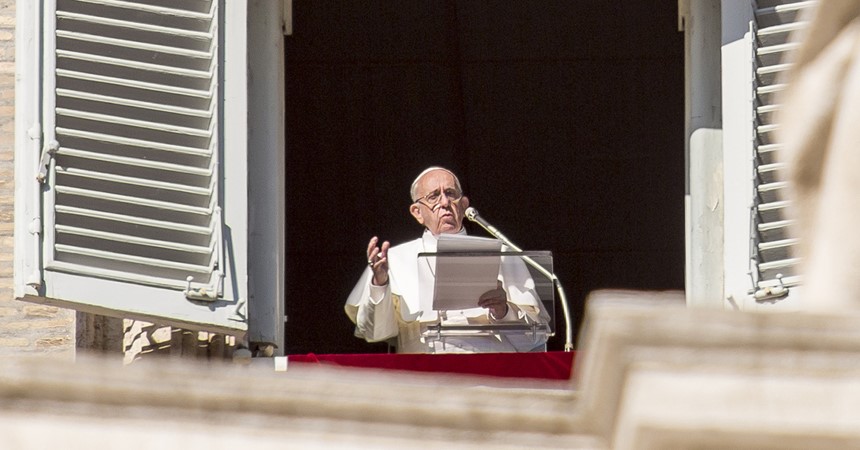Pope Francis scrutinised the growing preference for ‘fleeting relationships’ and urged us to seek the ‘stability of a definitive life project.’
“What is needed is a rock on which to build solid foundations. And this rock is precisely that faithful and indissoluble communion of love.”
Therefore, it is urgent, the Pope continued, that government policies support the family on which “the future of the development of states depend,” and without which future challenges cannot be met.
Pope Francis also took a strong stand on anthropogenic climate change, telling the gathering of diplomats that global warming is a result of human action.
“We must not downplay the importance of our own responsibility in interaction with nature,” Pope Francis told the Diplomatic Corps accredited to the Holy See.
“Climate change and the global rise in temperatures and their devastating effects are also a consequence of human activity,” he said.
It’s the first time Pope Francis has made a definitive stance on man-made climate change.
In 2015, the Pope declared: “The Church has no reason to offer a definitive opinion; she knows that honest debate must be encouraged among experts, while respecting divergent views.”
In the lengthy speech, Pope Francis urged all nations to support dialogue to ease tensions on the Korean peninsula and to work for a legally binding ban on nuclear weapons. He also repeated his call for a two-state-solution between Israelis and Palestinians and respect for the “status quo” of Jerusalem following Donald Trump’s decision to recognise the city as Israel’s capital.
Commenting on maintaining peace, particularly in the relationships between states, he quoted Pope John XXIII’s 1963 encyclical, Pacem in Terris (Peace on Earth), which says: “Love, not fear, must dominate the relationships between individuals and between nations.”
The Holy See has diplomatic relations with 183 states. Of these, 89 states maintain embassies to the Holy See in Rome, including the Embassy of South Africa, which was established last year.
